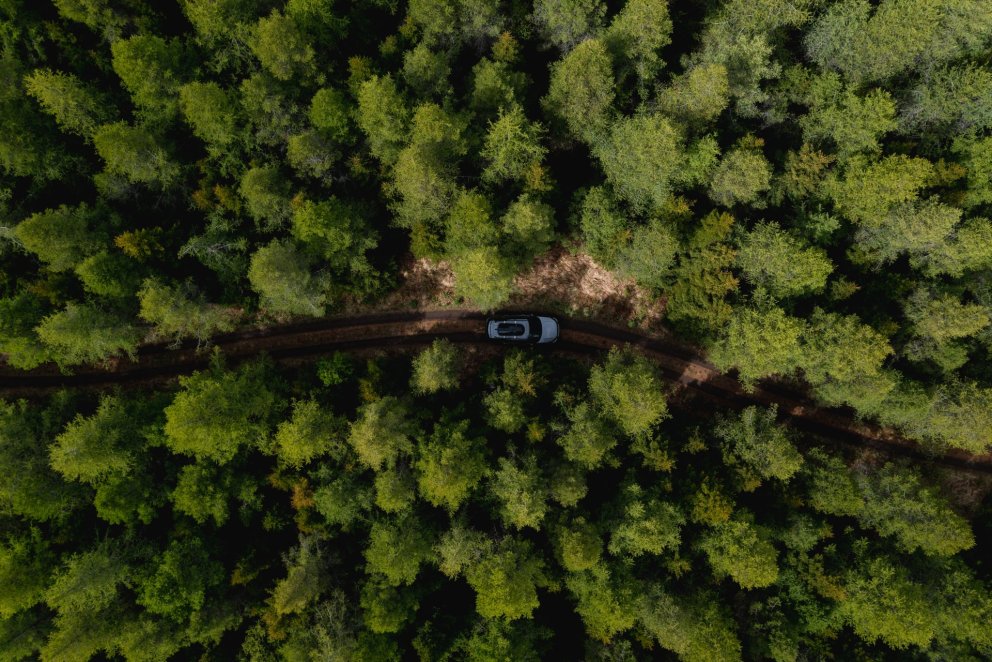Top 10 Must See Natural Wonders in East Iceland
Hengifoss waterfall
This standout waterfall is distinctive because of the red strata that form horizontal lines across its cliffs. It’s one of Iceland’s taller waterfalls, standing an impressive 128 metres high. Be sure to allow plenty of time to admire Litlanesfoss along the way as you hike to your main destination.
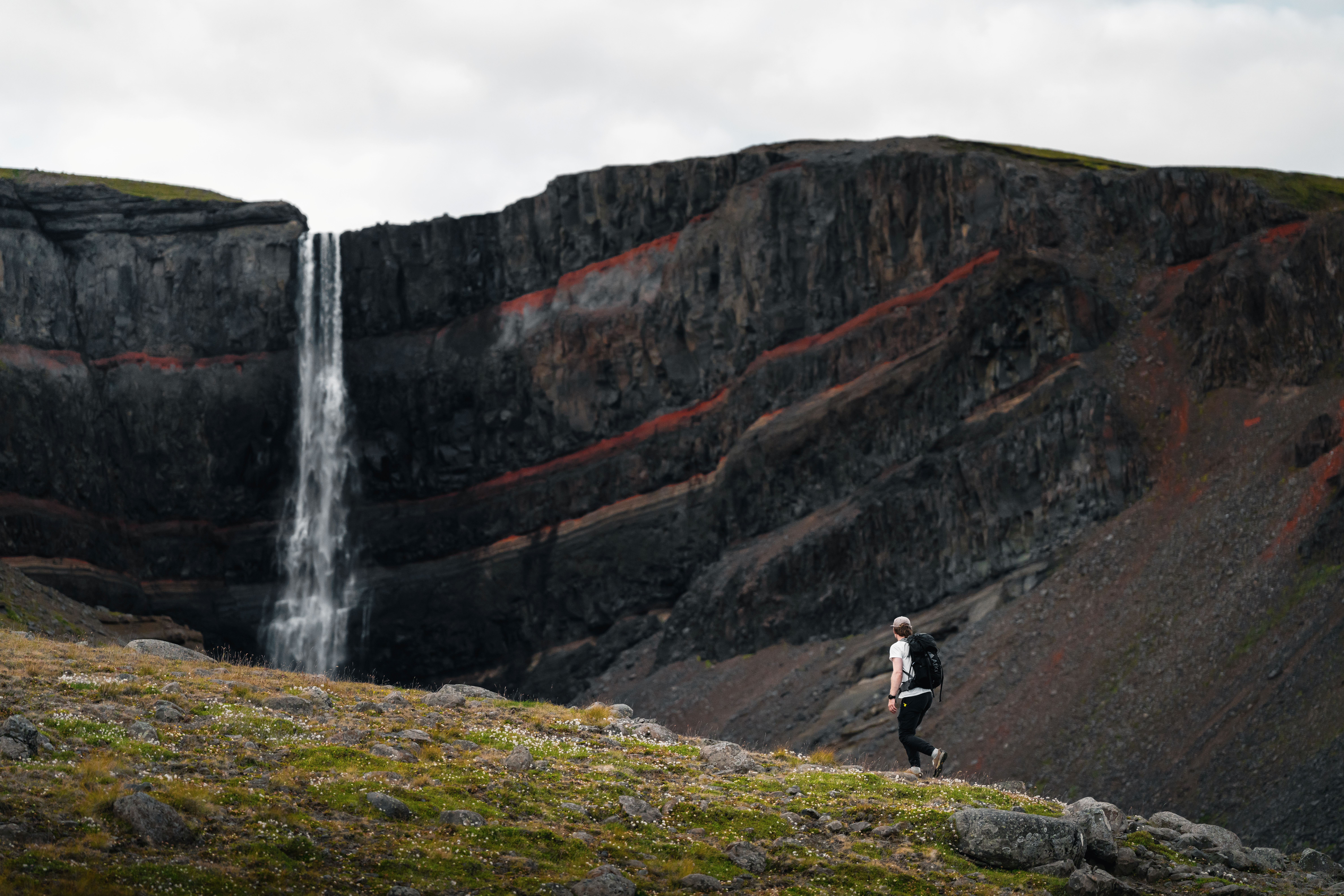 Hengifoss waterfall. Photographer: Þorsteinn Roy
Hengifoss waterfall. Photographer: Þorsteinn Roy
Skjólfjörur black sand beach
Known for its black sand and the driftwood that washes up onto the beach, this is one of the best places in East Iceland to watch the Atlantic Ocean. Powerful breakers have sculpted the rock here; one of the most iconic is a rock stack called Ljósastapi, locals call it Fíllinn (the Elephant) because of its shape.
Stuðlagil canyon
This dazzling canyon is renowned for the vivid blue colour which characterises the Jökla River for some of the year. Fed by a glacier, it contrasts beautifully with the rust-coloured basalt columns that flank the gorge. Hike along the valley and drop down to the water’s edge to enjoy the full effect of this incredible place.
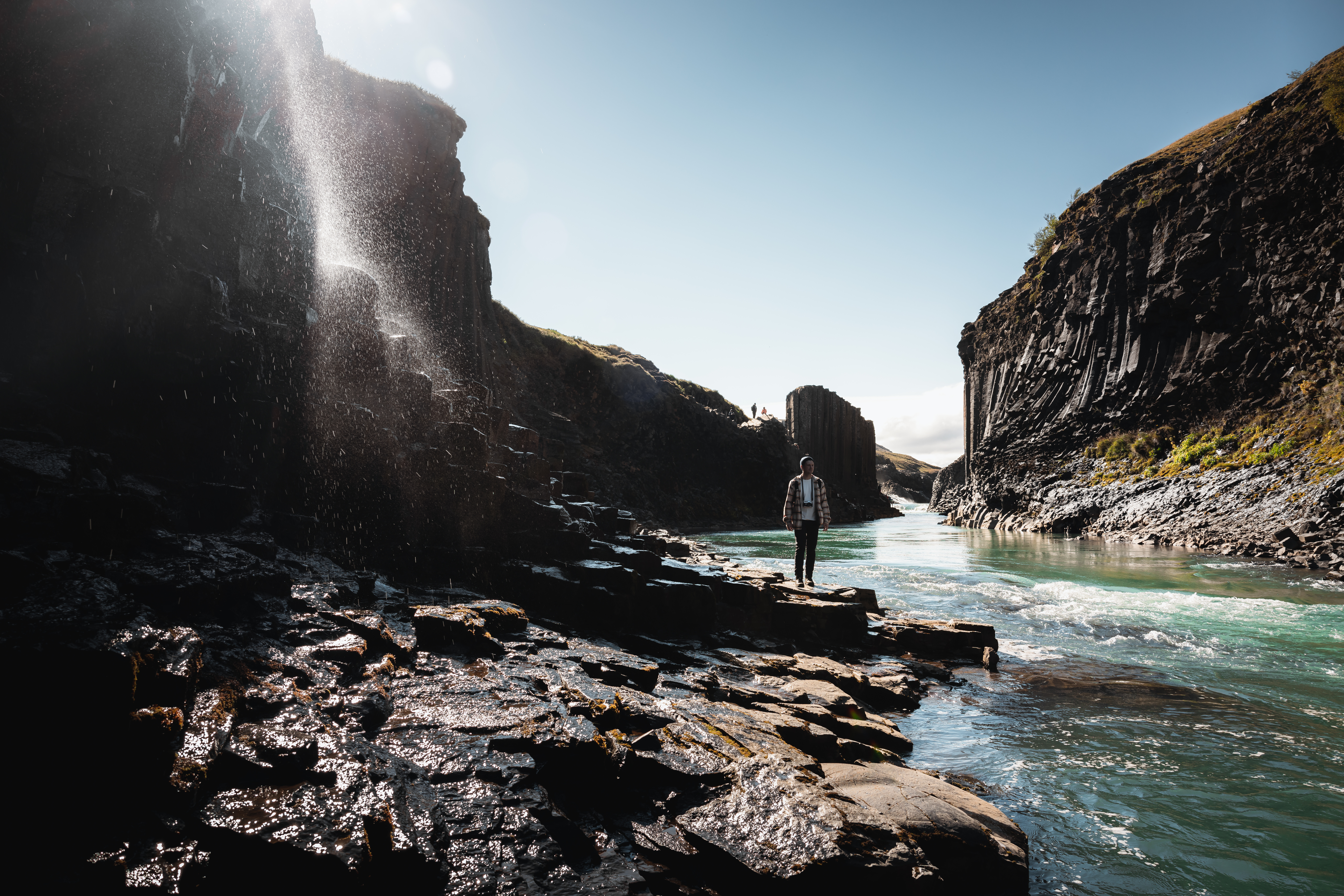 Stuðlagil Canyon. Photographer: Þráinn Kolbeinsson
Stuðlagil Canyon. Photographer: Þráinn Kolbeinsson
Hólmanes
Nature lovers should include Hólmanes in their itinerary as they explore East Iceland. Located on a peninsula between Reyðarfjörður and Eskifjörður, this nature reserve – established more than 50 years ago – is renowned for its birdwatching opportunities as myriad wading and seabirds are found here. Occasionally, you might also encounter reindeer at this serene spot.
Hafrahvammagljúfur gorge
At its highest point, this spectacular gorge is about 200 metres tall and makes a striking sight. Hafrahvammagljúfur stretches for eight glorious kilometres and is the ideal place for a hike. You’ll need a 4x4 to reach the trailhead but if you have rented a regular car, you can still see part of it from a distance from the Kárahnjúkar dam.
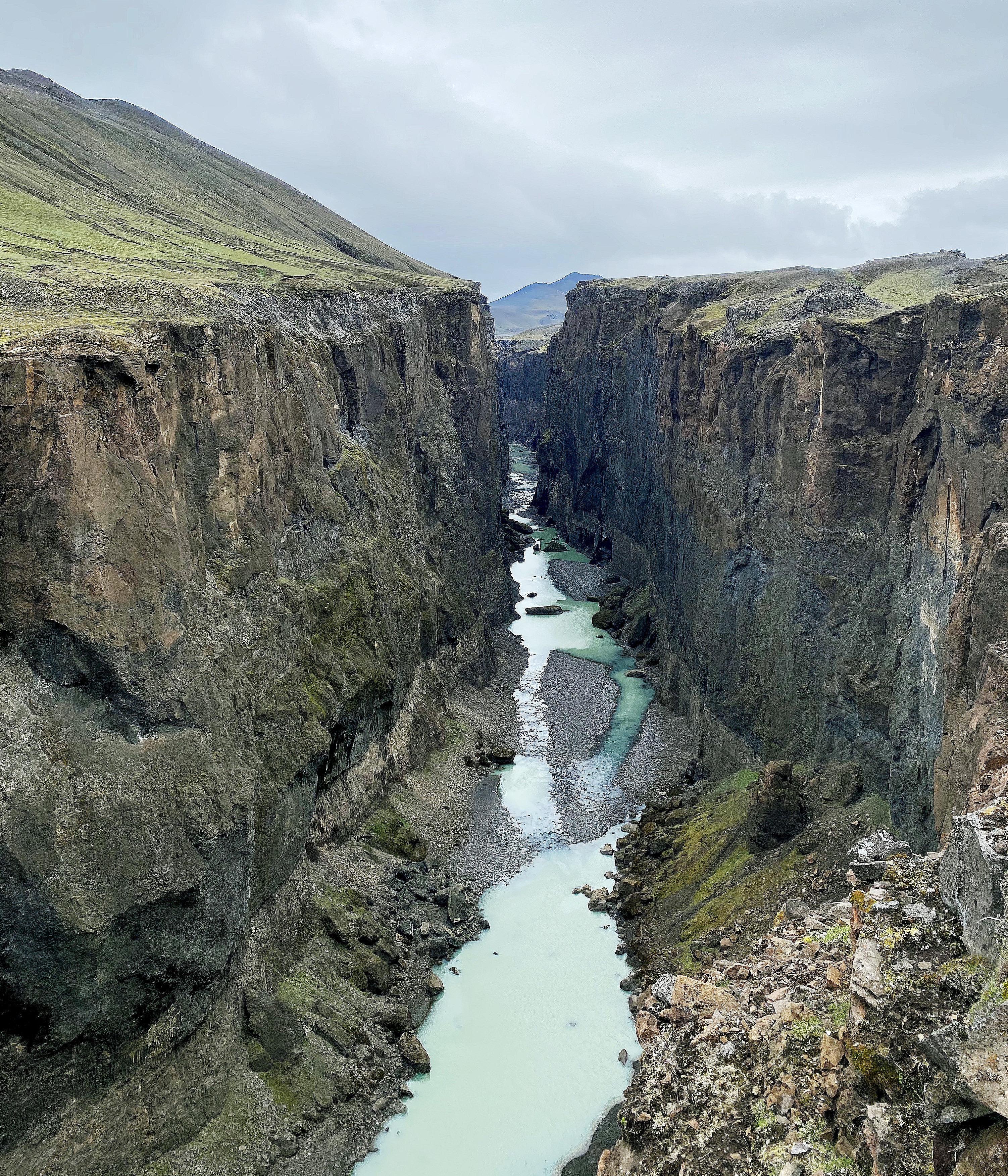 Hafrahvammagljúfur. Photographer: Ingvi Örn
Hafrahvammagljúfur. Photographer: Ingvi Örn
Víknaslóðir trails (Trails of the Inlets)
Linking the village in Borgarfjörður Eystri to Loðmundarfjörður, this network of trails is a paradise for walkers. They access striking mountains, verdant valleys, tucked away beaches, breathtaking fjords and deserted inlets. The sense of isolation is heightened as you pass the abandoned ruins of homes and farms that are no longer inhabited.
Hallormsstaður National Forest
Woodland probably isn’t the first thing that comes to mind when you picture the Icelandic countryside. Nevertheless East Iceland is home to the country’s largest forest, spanning a
total area of 740 hectares. Birch trees formed the basis for this woodland which now contains around 85 different species from around the world. Visitors can choose to hike, bike and camp here.
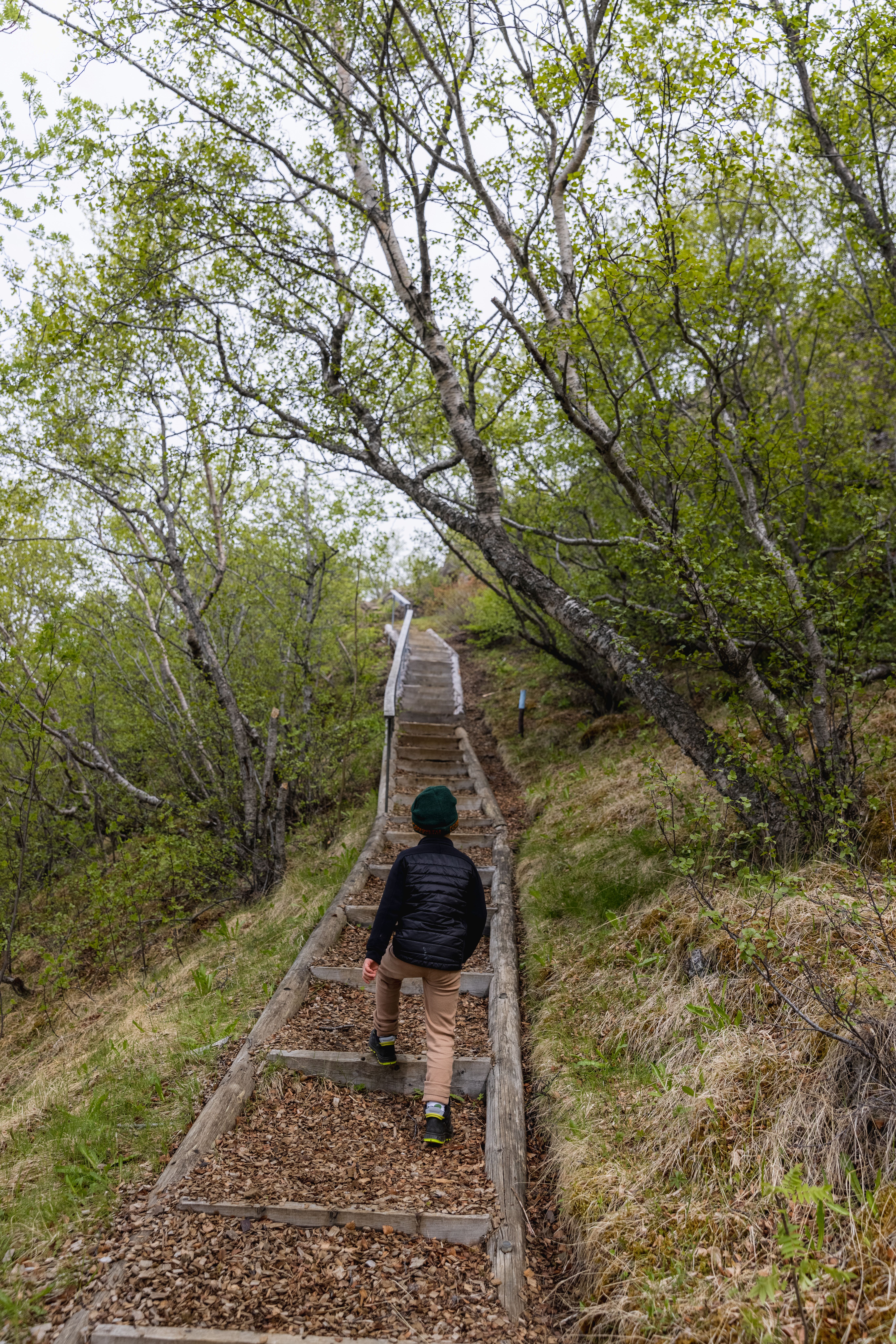 Hallormsstadur forest. Photographer: Gunnar Freyr Gunnarsson
Hallormsstadur forest. Photographer: Gunnar Freyr Gunnarsson
Dyrfjöll
This lovely mountain range is characterised by vertical walls that flank a gap which is often likened to a door. It was created during or before the last Ice Age and stands up to 1136 metres high. Experienced hikers who wish to inspect the moss-covered rocks, crystal-clear lakes and glacial features can follow a challenging hiking trail along the ridge of this ancient volcano.
Klifbrekkufossar
Waterfalls adorn many of Iceland’s hillsides and this one is especially pretty, surrounded by a lush green landscape. It cascades over seven separate drops with a total height of about 90 metres. You’ll find it in Mjóifjörður, where you can walk right to the base to take in this extraordinary view looking upwards at the entire waterfall.
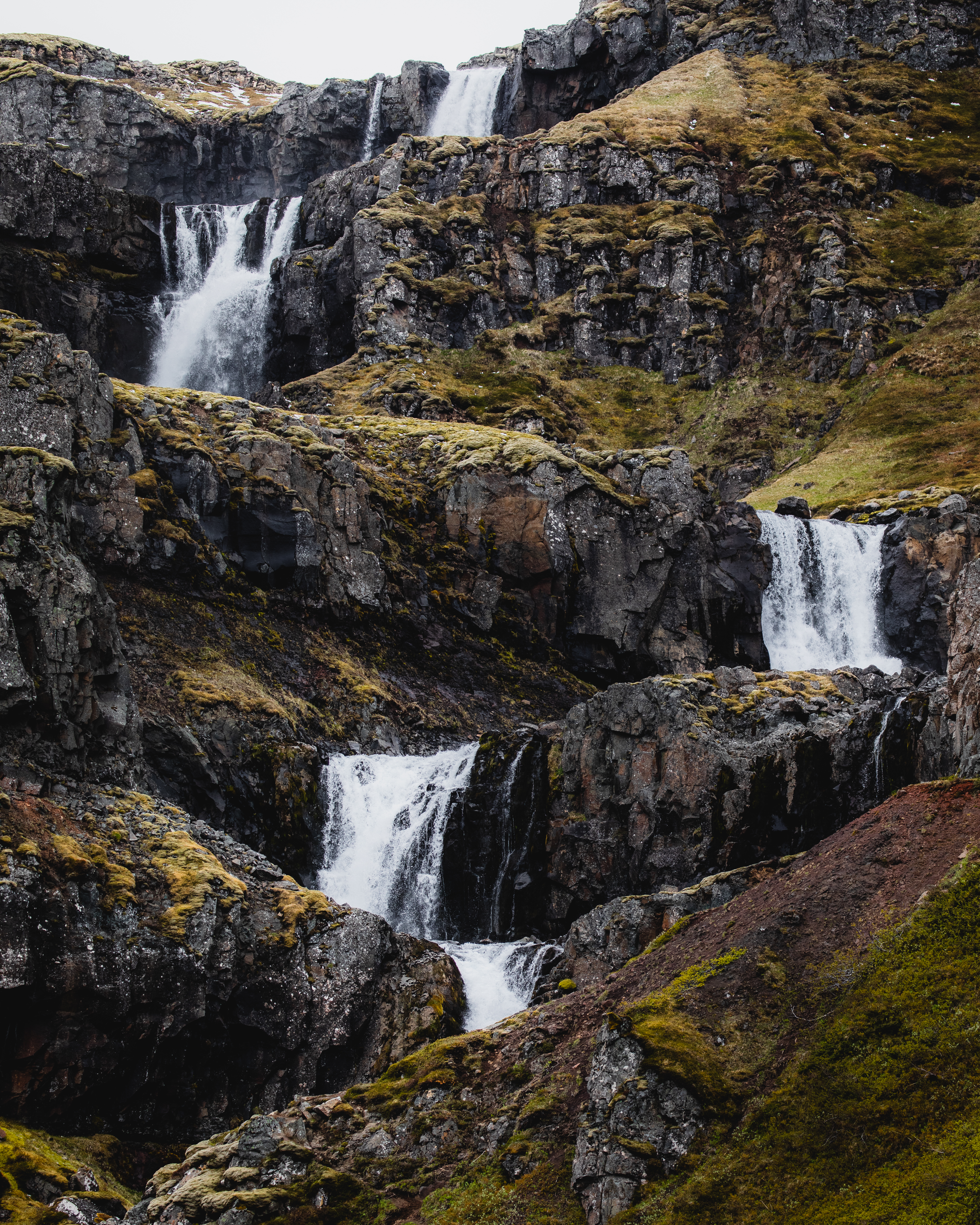 Klifbrekkufossar. Photographer: Gunnar Freyr Gunnarsson
Klifbrekkufossar. Photographer: Gunnar Freyr Gunnarsson
Hafnarhólmi
In season, tourists flock to the harbour at Borgarfjörður Eystri to visit one of the country’s largest and most accessible puffin colonies. From April to August, these cute and comical creatures come here to nest and rear their chicks. A plethora of other birds, including eider ducks, fulmar and kittiwakes, can also be seen here.
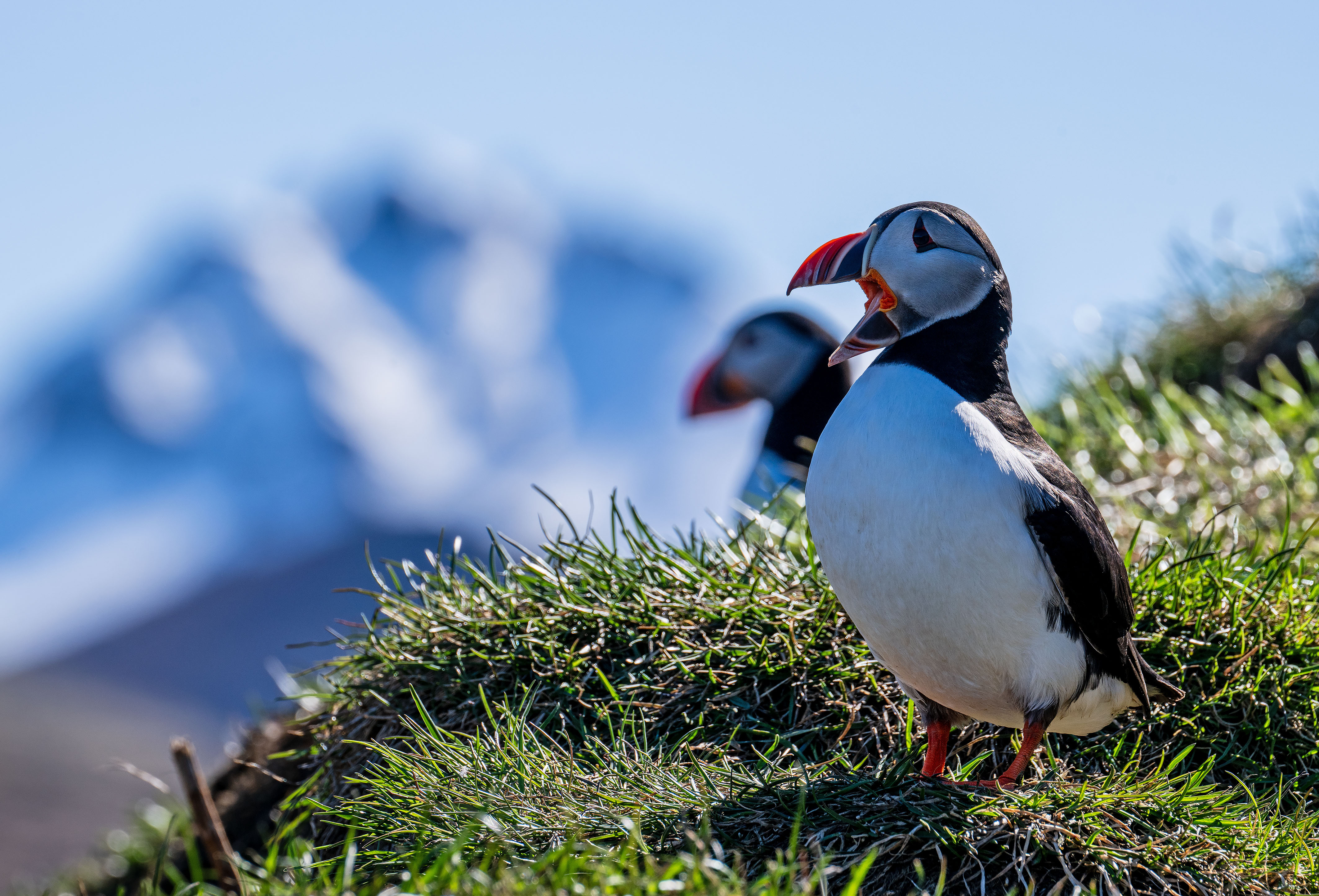 Hafnarhólmi. Photographer: Michael Neumann
Hafnarhólmi. Photographer: Michael Neumann

